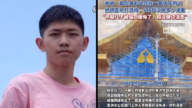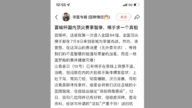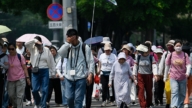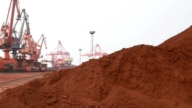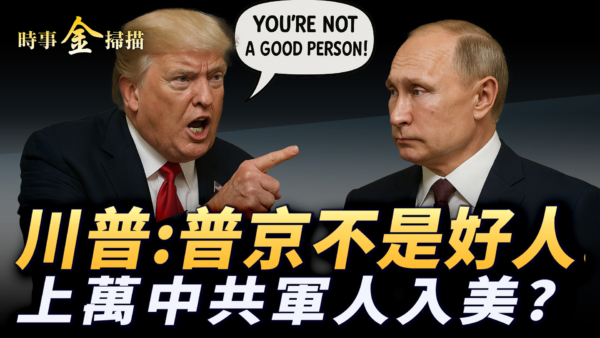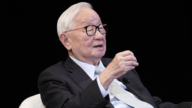【新唐人2013年01月18日讯】“中国建设银行”联合“波士顿咨询公司”发布了《2012年中国财富报告》。据报告显示,在中国,北京的富人最多,而不是经济最强大的江浙、广东等省份。学者指出,这是一种极度不正常的现象,折射了中国经济的邪路。
中国财富报告调研的范围是从全国30个省、市、自治区中,随机抽取金融净资产达到600万元人民币以上的1900多名高净值客户,并对他们的地域分布进行了详细的分析。被称为中国的“富人地图”。
报告显示,截至2012年底,可投资资产600万元人民币以上的家庭数量,将达到174万户,北京、上海、天津、广东和浙江的高净值家庭密度最高,其中北京每万户家庭中,高净值家庭数量超过200户,是中国富人最集中的地区。
无独有偶,在去年7月底,“胡润研究院”和“群邑智库”联合发布了《2012胡润财富报告》,详细剖析了目前中国大陆富裕人士的数量、地域分布情况以及消费习惯等。报告同样显示,北京千万富豪达到了17.9万人,亿万富豪约有1.05万人,排名第一。
在此之前,美国《财富》杂志中文网发布“2011年世界500强企业”最新排名,中国大陆企业入选69家,其中40多家的总部在北京,远远高于上海、广东等经济发达地区。
美国南卡罗来纳大学教授谢田:“中国的最富的人、最富的几千个、几万个家庭,实际上都是中共的高干、中共的既得利益集团这些最高的群体、他们自己、他们本人、他们子女、他们有裙带关系的人,而这些人都是用他们的权力、用政治权力直接换取的经济财富。当然,他们权力施展的地方就是在北京。”
旅日学者罗天昊撰文指出,论经济总量,广东和江浙和山东遥遥领先,北京在全国排名不过是中下游,但财富却集中在北京,这说明中国一定是一个权贵的国家;而且还能说明中国不是市场化国家,反映出民企式微,官企坐大,实业式微,垄断坐大,这是经济结构失衡的主要表象;同时还能说明中国社会阶层贫富分化的巨大。
罗天昊认为,就国家经济安全而言,财富集中在首都也非常不合理:北京挟制了太多的全国资源,势必对地方的发展起到抑制作用。同时,在有对外战争风险的情况下,首都一旦有变,将导致全国毁灭性的灾难。目前中日争锋,未来中俄争锋,北京都处于战略威慑之下。
罗天昊指出,最多富人集中于北京,折射了中国的社会结构畸形;最大企业集中在北京,折射了中国的经济结构畸形。他认为,这一切都折射了中国经济走的是邪路。
上海商人谢丹:“我们国家这种专制体制,政治它就要跟经济、文化、包括很多财产都要绑在一起。因为政治不是一个凭空的一个概念,它就是为了这些人捞取各种利益而服务的,所以政治的中心跟财富的重合,这跟一般的民主法治国家是不一样的。”
美国“南卡罗来纳大学”教授谢田指出,在正常民主国家,富人只跟产业有关,与政治权力无关。如在美国首都华盛顿,那里的富人并不多,因为官员也不敢用权力捞财富。他表示,一些国家首都富人多,首都一定也同时是经济中心。
上海商人谢丹认为,北京富人最多,同时聚集的财富也最多,这与经济规律背道而驰。这种怪现象是政治权力运作的结果,是攫取其他地区人民财富的结果,与封建专制制度一脉相承。
采访/朱智善 编辑/宋风 后制/萧宇
Evidence China’s Economy has Gone Astray
The Wealth Report of China 2012 was jointly issued by
China Construction Bank and the Boston Consulting Group.
The report shows that Beijing is the home of China’s rich,
instead of developed provinces like Zhejiang or Guangdong.
Scholars view this as a very unusual fact, which proves
that China’s economy has deviated from the right track.
The survey in the Wealth Report of China 2012
involves over 1,900 wealth assets in 30 provinces,
autonomous regions and municipalities.
These randomly chosen assets
each exceed 6 million yuan.
The report analyzed their geographical
distribution, known as China’s “wealth map”.
The report shows at the end of 2012, China had 1.74 Million
households that each had assets over 6 million yuan.
The riches are concentrated in Beijing,
Shanghai, Tianjin, Guangdong and Zhejiang.
For every 10,000 Beijing households,
there are over 200 wealthy families.
The capital is the most densely
inhabited area for the wealth in China.
Hurun Wealth Report 2012 was released in July 2012.
It offered a detailed analysis of China’s wealth, including
quantity, geographical distribution, and consumption habits.
In the Hurun report, Beijing was also listed No.1 for
having the highest number of China’s wealthy people.
The city had about 10,500 Billionaires and 179,000
rich people, whose assets exceed 10 Million yuan each.
The Chinese version of Fortune magazine website
released a ranking of Top 500 Global Enterprises of 2011.
69 companies in China were chosen, with
over 40 headquarters located in Beijing.
Xie Tian, Professor, University of South Carolina:
“China’s wealthy families are actually top-level Communist officials.
These Communist officials, as well as their offspring, and
their nepotism have gained wealth through political power.
Beijing is certainly the place where
they exercise political power.”
Japan-based scholar Luo Tianhao indicated in his article
that Guangdong, Zhejiang and Shandong are economically
further ahead of Beijing, which has only a lower-middle rank.
However, China’s wealth is concentrated in Beijing.
This indicates that China is surely under
the control of the wealthy and privileged.
It also proves that China is not yet market-oriented.
It presents a picture of weak private enterprises
and booming official-backed enterprises.
Businesses there are weak, while monopoly is strong.
Luo remarked that this is a feature
of economic imbalances in China.
There exists a huge gap between the rich and the poor.
In terms of national economic security, it’s irrational to
have wealth centered in Beijing, Luo Tianhao commented.
Beijing has been laden with too many resources, and
that will naturally curb development in other regions.
Also, if China was exposed to the risk of war, once the
capital was taken over, it would trigger a nationwide disaster.
Luo indicated that currently, there
are China-Japan confrontations.
In the future, there are potential Russia-China confrontations.
In both cases, Beijing is under a military deterrence.
Beijing’s concentration of wealth mirrors a distorted
social structure in China, said Luo Tianhao.
The capital is also a center for the largest enterprises,
illustrating a structural malformation of China’s economy.
He asserted that all these have proved
that China’s economy has gone astray.
Xie Dan, Shanghai businessman: “The tyranny in China
ties together politics, the economy, culture and even wealth.
This is because in China, politics is not an abstract concept.
It is a tool serving these people who
seek to gain various personal interests.
So politics has to be overlapped with wealth, which
is different from the case in democratic states.”
Professor Xie Tian says that in a normal democratic country,
wealth is derived from business, not from political power.
For example, in Washington where there isn’t large wealth,
as officials dare not get involved in power-for-money deals.
Yet in some countries the capital cities are economic
centers, and may gather most of the wealth, he says.
In contrast, Shanghai businessman Xie Dan thinks
that Beijing has many rich people,
The odd fact is a result of exercising political power,
and of grabbing wealth from other regions, he remarks.









